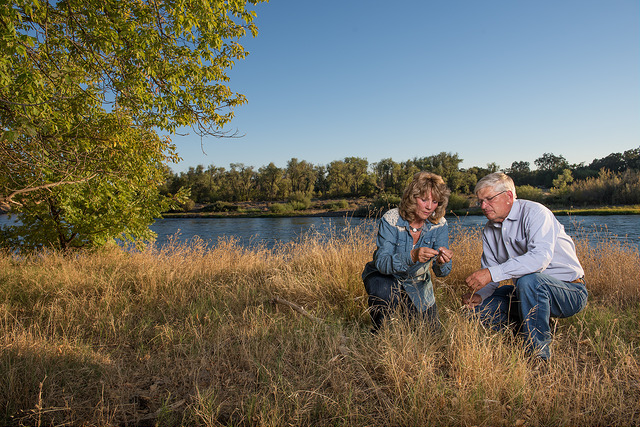
Jim and Mary Rickert have worked in production agriculture all of their lives, developing a deep love for the land and wildlife on the many acres they manage. Hired in 1979 by the original owner of Prather Ranch, the Rickerts have responsibly managed the land and recently became majority owners. Under their care, Prather Ranch has grown from 3,000 acres of pasture, hay and timberland, to over 35,000 acres.
Originally a commercial cow/calf ranch, Prather Ranch has transitioned to a vertically integrated beef business that includes the beef herd, a feed yard, processing facility and retail meat outlets. During this transition, the Rickerts developed a closed herd to fulfill the requirements of biomedical companies to supply the highest quality biomedical grade collagen, pituitary glands and tendons for medical use.
Intensive grazing has been practiced on the ranch for many years, increasing plant diversity to include a mix of nitrogen-fixing legumes and natural grass species that have improved productivity without the use of applied fertilizers. As a result of the Rickert’s intensive grazing and improvements in irrigation efficiencies, the carrying capacity of the rangelands and pastures have more than doubled over the last 30 years.
The Rickerts’ grazing practices mimic the native herbivores on their land. In the summer, the cattle graze the mountains when it is cooler in the Alpine area. During the winter the cattle are moved to the more Mediterranean-like Sacramento Valley foothills. This pattern allows the cattle to graze year-round and protects the land in the off-season.
Humane treatment of their animals is a cornerstone of the ranch’s core values, and is of great importance to their beef customers. The ranch was certified in 2003 by an organization that promotes the humane treatment of livestock, and also undergoes annual audits to ensure the animals are being humanely raised and harvested.
“The Rickerts have taken an extraordinarily active role in California’s ranching community and have been leaders in proactive stewardship of the state’s land, water and wildlife resources,” says Billy Flournoy, President of California Cattlemen’s Association. “They focus their time and efforts on sound conservation practices in order to keep ranching viable in California.”
Courtesy of Sand County Foundation.
